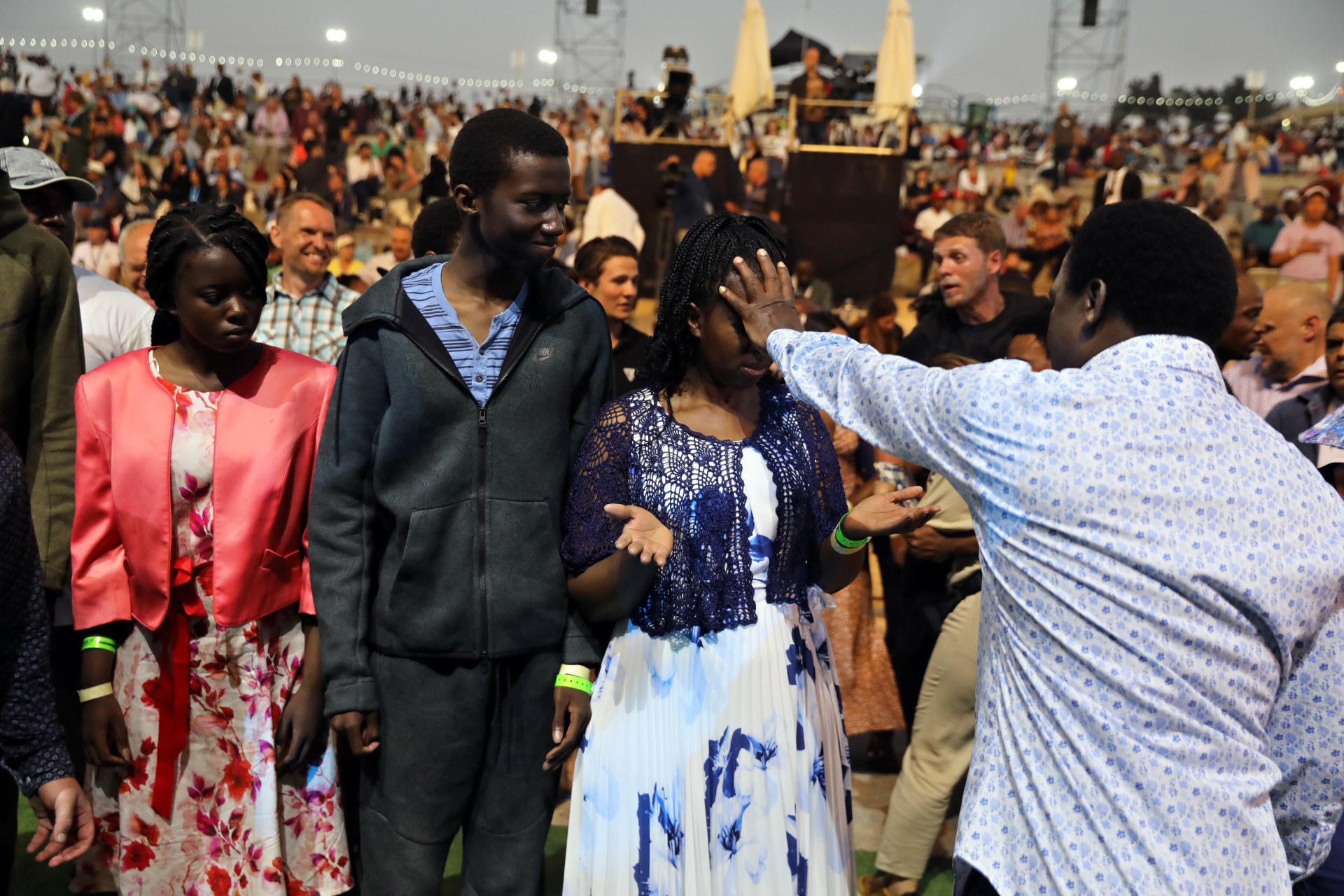T.B. Joshua: A Preacher Who Held Outsized Influence in Nigeria and Africa
Prophet T.B. Joshua, who died aged fifty-seven in Lagos in June and was buried last Friday, is an example of an African religious leader who, within his own country, was probably more influential than any political figure.

By experts and staff
- Published
By
- John CampbellRalph Bunche Senior Fellow for Africa Policy Studies
Policy makers, diplomats, and commentators in the secular West often fail to take into account the profound influence of religious leaders in sub-Saharan Africa, whether among Christians, Muslims, or adherents of traditional religions. Heaven, hell, and what secularists regard as magic are literal realities, more immediate than government policy or the pronouncements of political leaders. What the preacher says is more credible than the utterances of politicians.
Prophet T.B. Joshua, who died aged fifty-seven in Lagos in June of causes not announced and was buried last Friday, is an example of an African religious leader who, within his own country, was probably more influential than any political figure. Further, political leaders even outside Nigeria sought to be associated with him in some way, not least because it enhanced their standing at home. They ranged from Julius Malema, perennial bad boy of South African politics, to Joyce Banda, former president of Malawi, to Morgan Tsvangirai, opposition leader in Zimbabwe, to John Magufuli, the former president of Tanzania who recently died in office. In Lagos, Joshua’s mega-church, Synagogue Church of All Nations (SCOAN), regularly attracts some fifteen thousand worshippers every week. SCOAN is an international pilgrimage site, with more visitors than Buckingham Palace and the Tower of London combined. His YouTube channel, Emmanuel TV, has an audience across Africa and elsewhere in the world. It has an estimated 1.8 million subscribers and 600 million viewers. His Facebook page has over 6 million subscribers. He was the first African televangelist to use the internet and satellite television to sell his religious vision to a domestic and international audience.
Joshua’s preaching appeared to be an amalgam of conventional Pentecostal themes plus prosperity gospel, prophecy—he predicted a Hillary Clinton victory in 2016—miracle working, healing, exorcism, patriarchy, and homophobia. (YouTube shut down Emmanuel TV for homophobic hate broadcasts.) It also incorporated practices borrowed from African traditional religion. He was regularly criticized by the mainstream Pentecostal Fellowship of Nigeria for false miracles and healings. Nor was he embraced by the Christian Association of Nigeria (CAN), an umbrella Christian political organization dominated by churches of European origin, though CAN did send a delegation to Joshua’s burial. Many of the clergy of the relatively declining Anglican, Methodist, Presbyterian, and Roman Catholic churches questioned whether Joshua could even be described as Christian. Rough, even crude in style, Joshua was an outsider, even though much of his public preaching was similar to that of other African televangelists.
Despite that disdain, Joshua became wildly popular. Born into a poor Yoruba family, his preaching was often delivered in a mixture of Yoruba, Pidgin, and English on themes that were accessible to his audience. His formal education was limited: he did not complete secondary school. His family included both Christians and Muslims, as is typical among the Yoruba, and he was raised by a Muslim uncle after his father died. His preaching was not as disfigured by Islamophobia as that often found among other televangelists. He became very wealthy, but was also celebrated for his philanthropy.
Many Western diplomats are hesitant about cultivating ties with religious leaders, and when they do, they are often more comfortable talking to Anglican bishops, Roman Catholic cardinals, and mainstream imams. Yet, it is religious leaders such as T.B. Joshua who have sway over many Africans and profoundly influence the direction that the continent will take with respect to, inter alia, responding to new diseases to protection of minorities, even to sustaining a democratic trajectory in government, or, alternatively, the adoption of authoritarian systems.
This publication is part of the Diamonstein-Spielvogel Project on the Future of Democracy.
